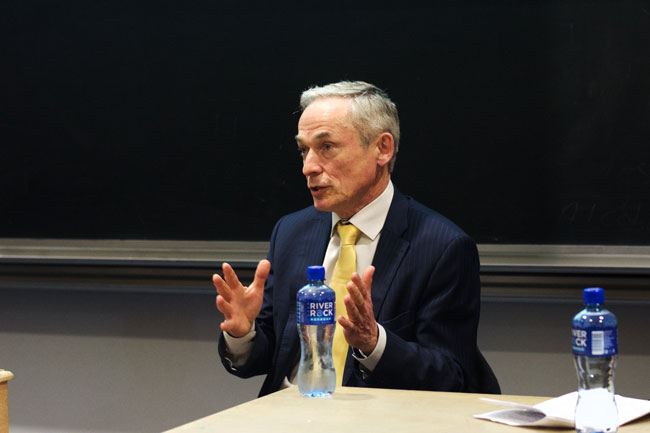The government today announced that it will treble its spending on capital investment in higher education, as part of Project Ireland 2040.
A refurbishment and upgrade programme totalling €112 million will see universities around the country provided with funding to refurbish and expand their premises. Dundalk IT, Limerick Institute of Technology (LIT) and GMIT were announced today as the recipients of funding totalling €32.1 million.
In addition, the government has pledged €117 million to strategic projects, announcing today that Dublin City University (DCU) and IT Tallaght – the latter of which will merge into Technological University Dublin in January 2019 – will receive €31.7 million for a future technology building, and a sports science, health and recreation building, respectively.
The remainder of the funding for strategic projects will constitute a fund for infrastructural developments for third level institutions, which will co-fund projects with the aim of delivering the same level of private funding. Higher level institutes will be able to apply for funding if they fulfil the government’s criteria for selection and can make up the balance through philanthropy or by borrowing.
The government is aiming to make the Irish education and training service the best in Europe by 2026.
Oisín Hassan, the Vice-President for Academic Affairs of the Union of Students in Ireland (USI), said in an email statement to The University Times: “While we welcome today’s announced capital investment by Government, it must be recognised that this comes after years of neglect and disinvestment, which ultimately fell on the shoulders of our students paying extortionate fees and contributing through other course costs.”
Hassan said that “the reality is that Government are playing catch-up after years of ignoring the plight of Higher Education, and yet again, students are not their priority. The truth is we know with the 2nd highest fees in Europe, SUSI grants that haven’t been increased since 2012, and spiralling rents, students are choosing to study closer to home or not to go in to Higher Education at all”.
“It’s time the Government invested in alleviating the financial crisis facing our students. Build accommodation, reduce fees, and increase the grant”, he said.
In a press statement, Minister for Education Richard Bruton said that “education is critical to planning for a strong, future-proofed economy, balanced across the regions and a fair society, removing barriers to opportunity”.
“We are giving schools, higher and further education institutions more certainty over the grants they receive and better lead in times, making it easier to plan”, he said.
“Education is the engine behind strong regional growth, which is pivotal rebalancing growth as envisioned by the Project Ireland 2040. It is central to this government’s central objective, which is to provide for a strong economy and a fair society. The investment under the Project Ireland 2040 will have a transformative impact on our education system and take us further along our journey, to becoming the best in Europe.”
Minister for Higher Education Mary Mitchell O’Connor said in a press statement that the project “represents a step change for State capital investment in higher education – close to a tripling in funding over the next decade when compared to the past decade”.
“It will also help address current infrastructure deficits and cater for the projected 20% increase in the higher education student population between now and 2029”, she said.
This year, Dublin Institute of Technology (DIT), Institute of Technology Tallaght and Institute of Technology Blanchardstown (ITB) will merge to form Ireland’s first technological university.
The higher education sector has for years suffered from a severe lack of funding. No decisions have been made yet as to the future of funding for the sector, with income contingent loans, fee increases and an increase in exchequer funding all mooted as solutions.







